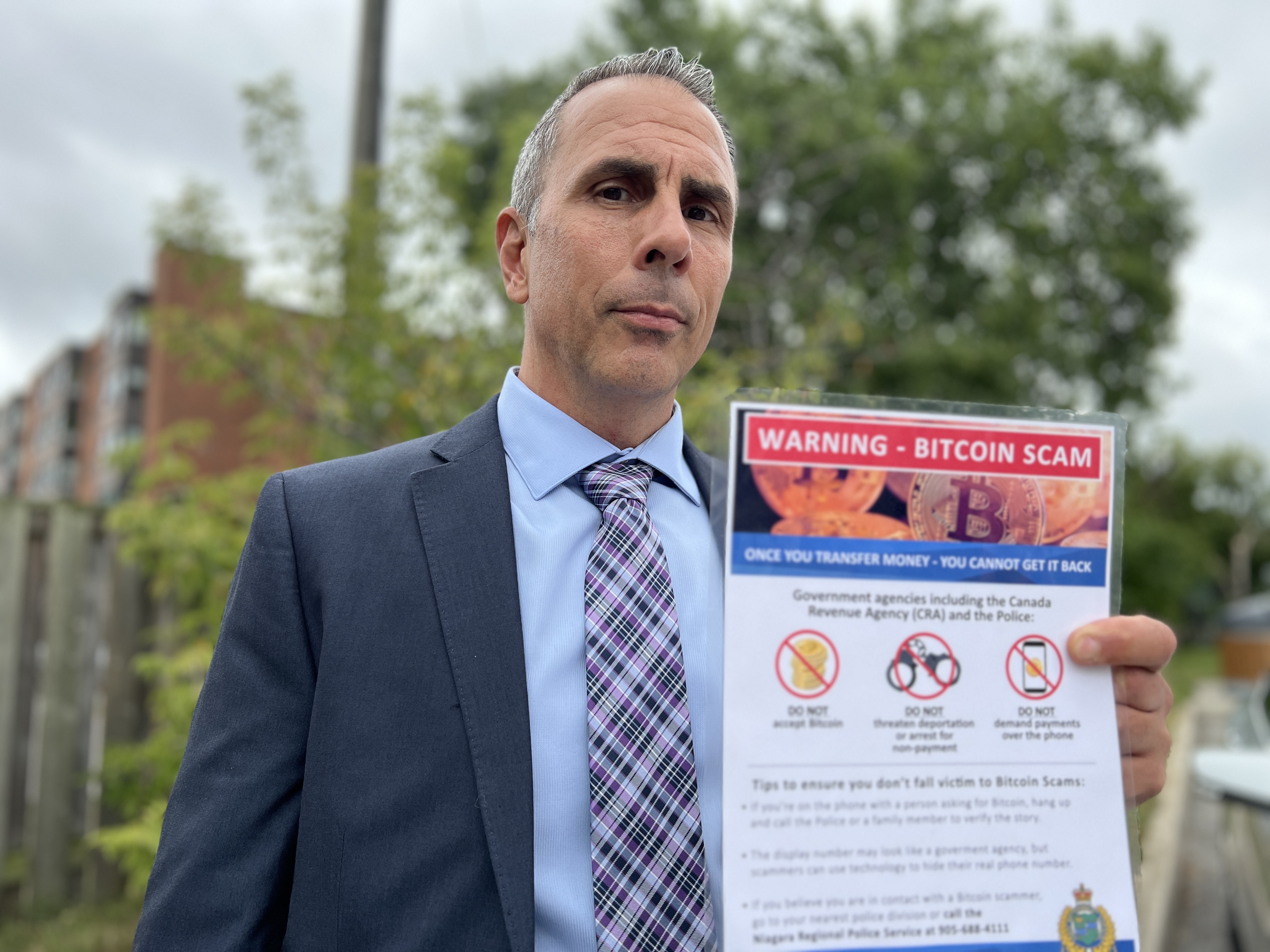 | | | | This is your Marketplace Watchdog for Friday, Oct. 10, 2025.
By: Dexter McMillan | This week on Marketplace, we investigate a network of scammers overseas. We expose how fraud victims are urged to sign up by fake ads on social media that use AI to generate convincing news reports and celebrity endorsements. The scammers pose as financial advisers, confident in their ability to evade arrest as they rake in tens of thousands of dollars a month. We team up with Radio-Canada’s Enquête and a global team of journalists to unmask the criminals and track down their victims.
Watch “The Fraud Factory” Friday night at 8 p.m. (8:30 in N.L.) on CBC-TV, YouTube and CBC Gem. | | | | |  | Fitness app Strava is suing watchmaker Garmin. Here's why that has runners sweating | If you didn't track your pace on Garmin and upload it to Strava, did you even really run?
With fall race season at its peak, a number of athletes are stressing over news that fitness tech leaders Strava and Garmin are at odds in a U.S. lawsuit, with Strava suing Garmin, alleging patent infringement and breach of contract.
Specifically, some people are worried the lawsuit could impact the user experience for the millions of people who wear Garmin's smart watches and use Strava's fitness-tracking app. On TikTok, a slew of runners have posted videos lamenting the timing of the suit because several major running events are coming up, including the Chicago and New York City marathons.
In an official statement posted to Reddit on Oct. 2, Strava’s chief product officer, Matt Salazar alleged that Garmin has threatened to cut off access to their software interface, which would mean activities tracked using Garmin devices couldn't be uploaded to Strava unless Strava complies with Garmin's new developer guidelines.
And as any tech-wearing athlete pushing themselves to the absolute limit just to get a "Local Legend" wreath or a personal record will likely attest: if it's not on Strava, it didn't happen.
Susan Ibach, 55, a runner in Ottawa's rural Manotick community, told CBC News she's seen a lot of chatter about the lawsuit. Ibach has completed dozens of marathons, including last summer's Paris 2024 Marathon Pour Tous, and she trains often.
Like many others, she uses Garmin devices and Strava, but says that might change if things "turn really nasty" with the lawsuit.
"I do hope when the dust settles that Garmin devices can still sync to Strava."
CBC News has reached out to both Strava and Garmin for comment. Garmin said it doesn't comment on pending litigation. Strava has yet to respond.
Read more from CBC's Natalie Stechyson. | | |  | | | More young Canadians are tapping AI for learning, even when concerned about it | Studying for a recent computer science midterm, Elaine Xiao just couldn't wrap her head around certain concepts. So, she popped open ChatGPT for a quick explanation. It was a fast, accessible solution to that mid-study session hurdle, Xiao says, instead of searching multiple articles for an answer. "It really talks to you in a way that is easy to understand," said the Canadian student, who's in her first year at Duke University in Durham, N.C. Generative AI tools "easily get information to help you study better, work better," she said. "AI can really be a tool that's there for us." More Canadian post-secondary students are turning to artificial intelligence for school and they're eager for additional opportunities learning how to use it. Nearly three-quarters of young adults who responded to a recent KPMG Canada survey said they use generative AI for their work, up from 59 per cent last year. Yet students are still worried about cheating and the impact on their critical thinking, with some experts saying more clarity and support from instructors and institutions is needed.
Read more from CBC's Jessica Wong. | | |  | | | Peer countries are tightening regulations on crypto ATMs to fight fraud, so why isn't Canada? | Twice, Det. Sgt. Ray Aceti was at the right place at the right time to stop a scam victim from sending thousands of dollars to a fraudster through a crypto ATM. The first save was about five years ago, with a recent immigrant who'd taken out his life savings. "He was so overwhelmed by being on the phone for several hours with this fraudster who had coached him basically right to the brink of putting that money into the machine," said Aceti, who works for Niagara Regional Police in southern Ontario. "I said, 'If the money goes into the machine, you'll never see it again.'" The second time was in January, as Aceti wrapped up a crypto ATM awareness campaign that saw him and other officers install fraud warning posters beside 85 machines in the area. Since 2020, scam victims have reported more than $3.1 million in fraud losses through crypto ATMs to Niagara Regional Police. Nearly $1.4 million of that was reported last year. Other police services like the RCMP and Ontario Provincial Police have also put up warning posters. But when it comes to oversight, there are no regulations specifically designed for this industry, which has seen more than $1 billion in transactions across the country so far this year. Though they operate legally, Canada's financial intelligence agency, Fintrac, has determined that crypto ATMs have become the main method fraudsters use to get money from scam victims. Several of Canada's peer countries have been cracking down on the industry with targeted regulations in recent years.
Read more of the first story in a three-part CBC series on crypto ATMs. | | |  | | Have you noticed any products at the supermarket that claim to be proudly Canadian, but you’re not convinced? If you've seen maple washing, we want to hear about it! Email us at marketplace@cbc.ca. | | |  | | | Are you on the lookout for the latest in business news? You'll want to subscribe to this newsletter, too.
Mind Your Business is your weekly look at what’s happening in the worlds of economics, business and finance. Subscribe now. | | | | |  | Catch up on past episodes of Marketplace anytime on CBC Gem. | | | | |

